Let’s get together and make amazing things happen.

AMBITION
The NHS Integrated Covid Hub’s goal was to change young people’s minds around getting the Covid vaccine. The ambition was to get as many young people in the region vaccinated as possible.
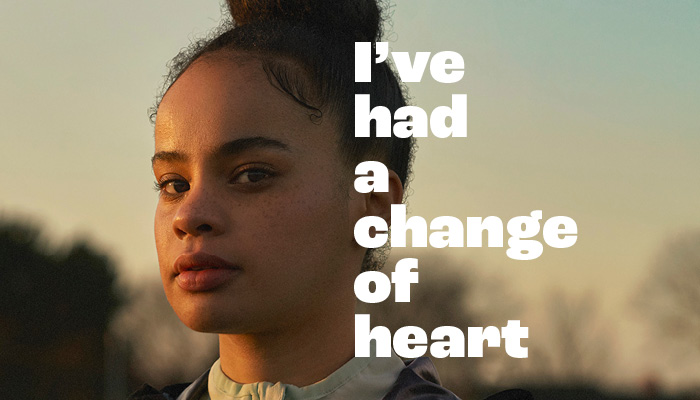
STRATEGY
Using comprehensive ethnography, behavioural analysis, and co-creation with our audience, we discovered the many barriers to vaccination.
Our behavioural insight-led strategy centred on giving young people the permission, opportunity, and freedom to reconsider and have a ‘Change of Heart’.
We needed to acknowledge people’s reasons for not being fully vaccinated in our creative. If we didn’t show that we understood our audience, we knew we’d be ignored.
We wanted to show that we knew these fears felt real to them, and that it was quite normal to have some questions and doubts. But we made it clear that there really wasn’t a reason to feel entrenched or trapped in their views.
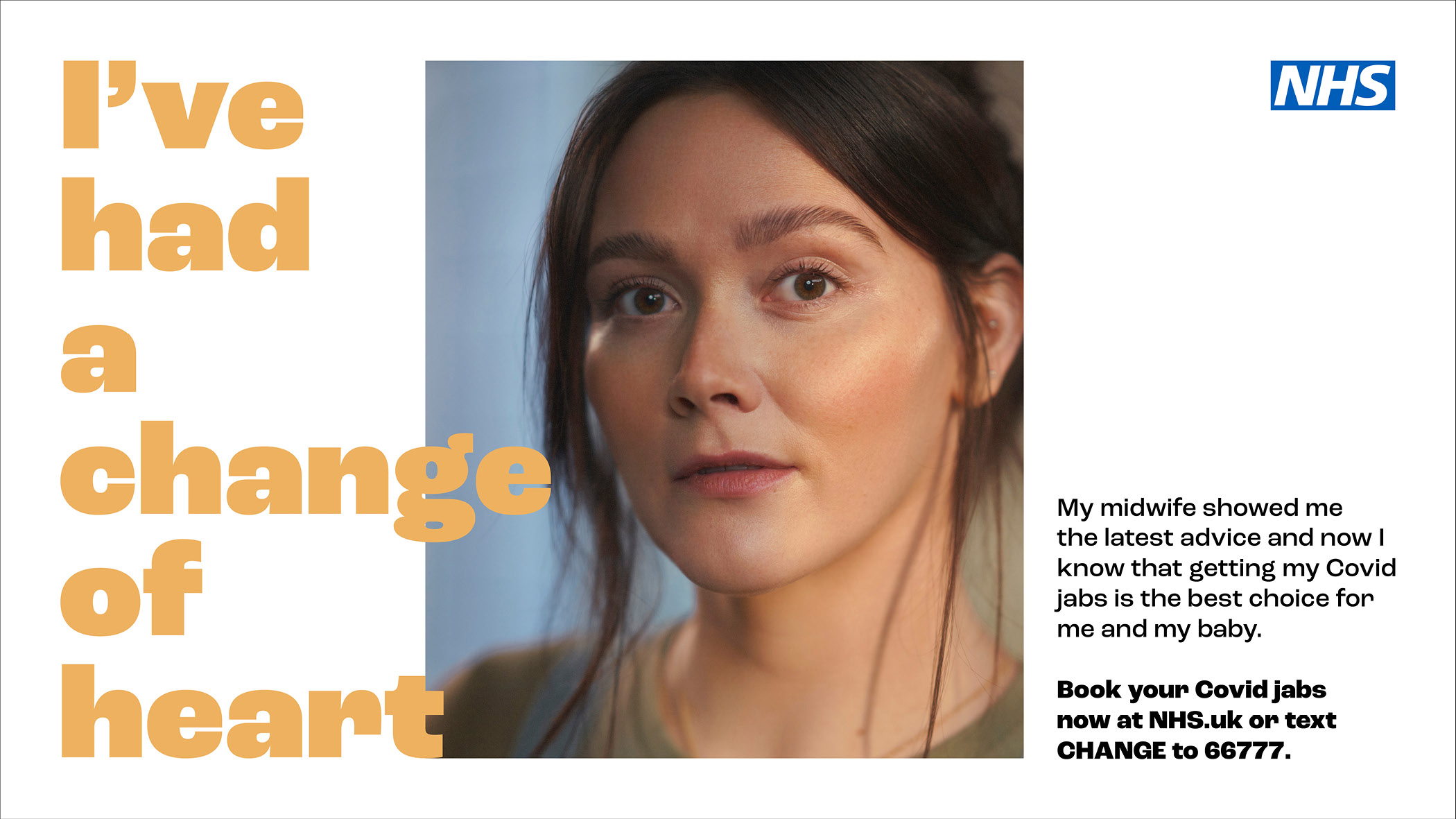
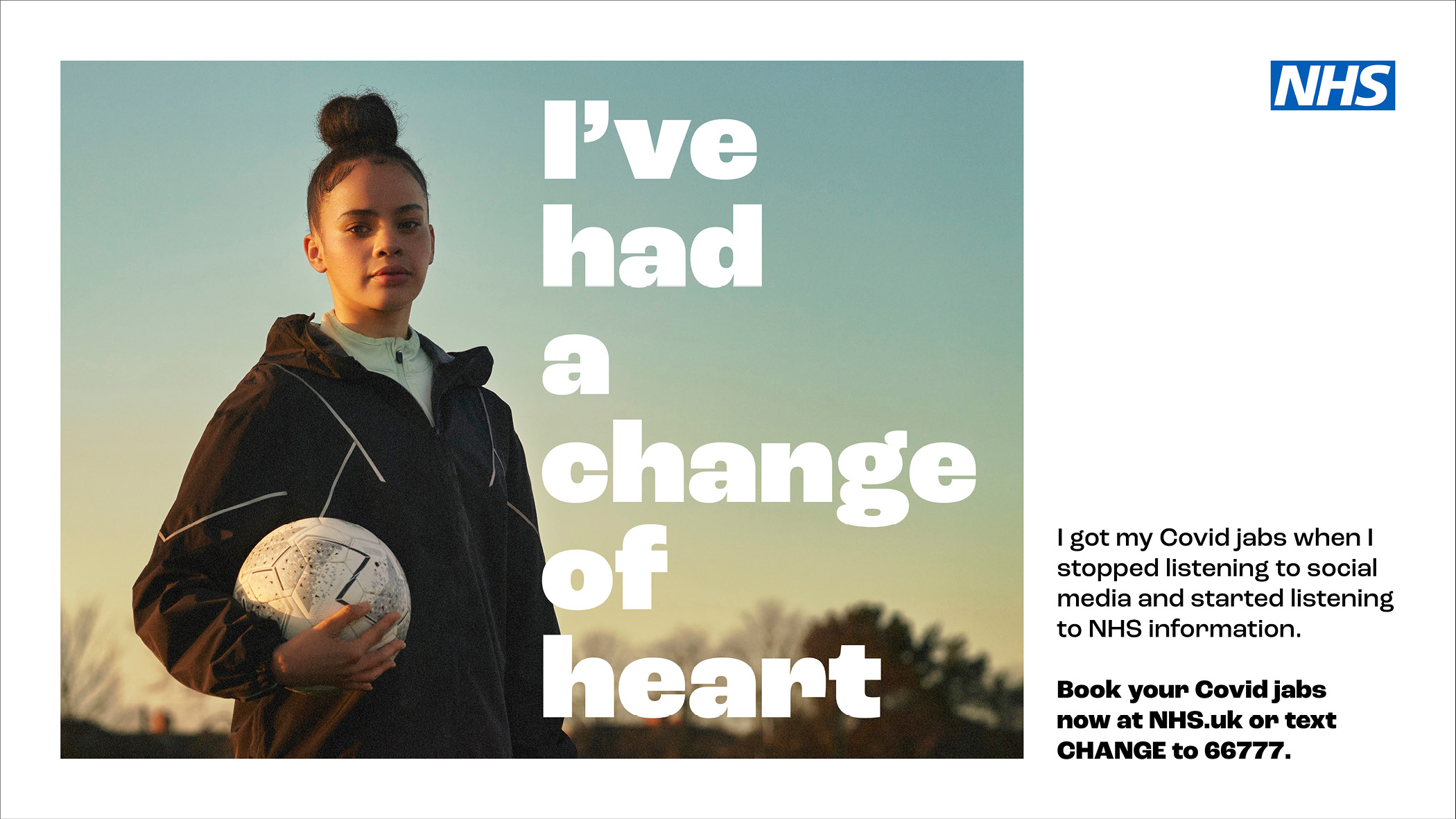
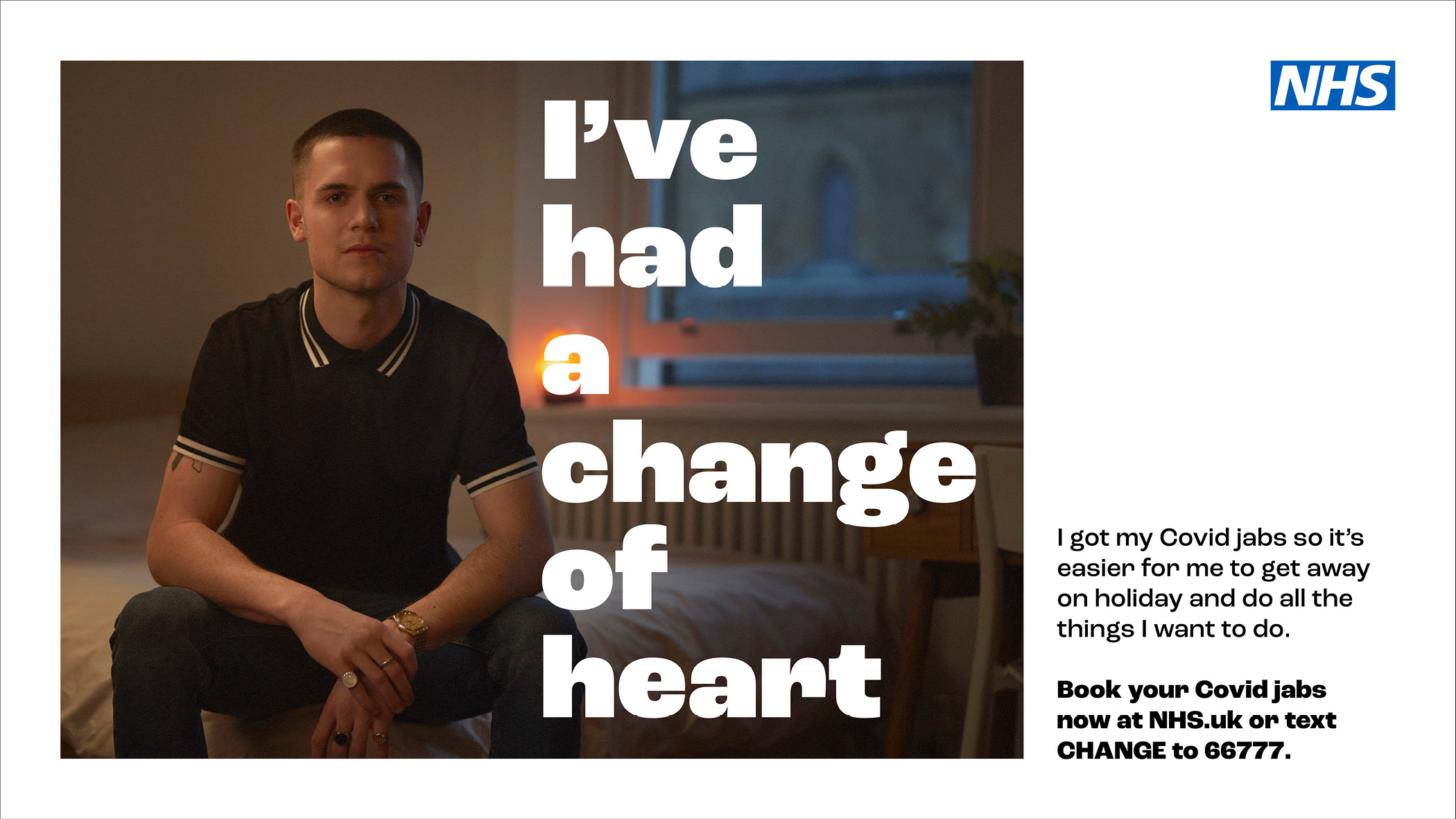
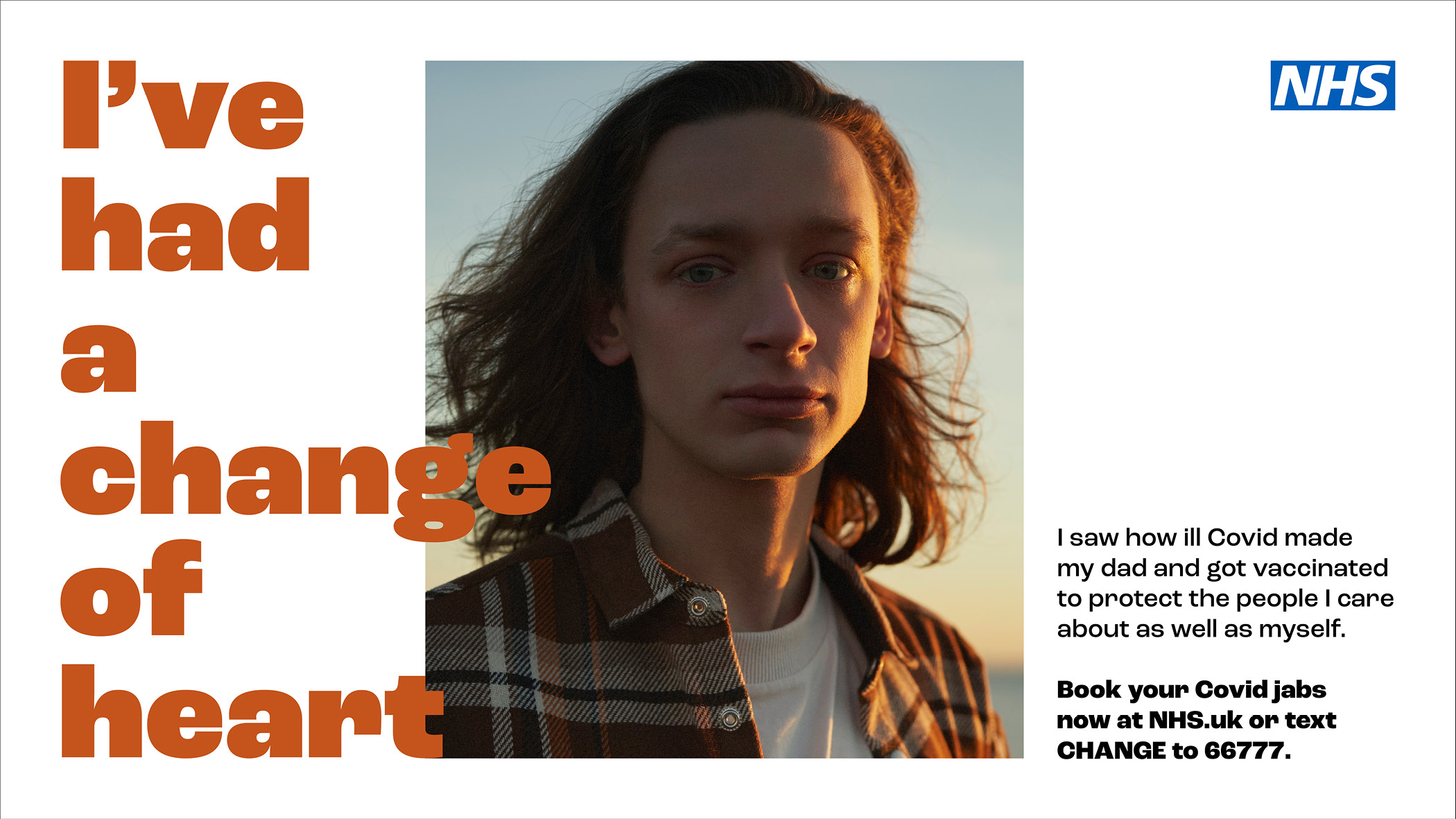
SOLUTION
We wanted to give our audience a way out of vaccine hesitancy without losing face or their own sense of identity. We wanted to inspire them to make up their own minds and reconsider, without feeling foolish or contrary.
We did this by creating a campaign with four storytellers. Each one with their own reasons for previously being vaccine hesitant, whether that was someone who hadn’t been badly affected when they had Covid, someone worried about their pregnancy, someone influenced by the opinions of others, or someone who hadn’t seen the urgency until they wanted to go on holiday.
We cast authentic-looking, down-to-earth locals who spoke to the broad and heterogeneous audience known as ‘Young People’ – the skater, the mum-to-be, the Jack-the-lad and the budding football lioness. Each person was from a different part of the region, and they told their story simply and directly. They laid out their initial concern, then described the turning point that led to their change of heart.
The campaign was live for 2 months across multiple media outlets, with a call to action to point people in the direction of official NHS information. Outlets included TV, VOD, digital radio & streaming services, cinema, YouTube, paid social, digital display and out of home all supported by PR and media relations across the region.
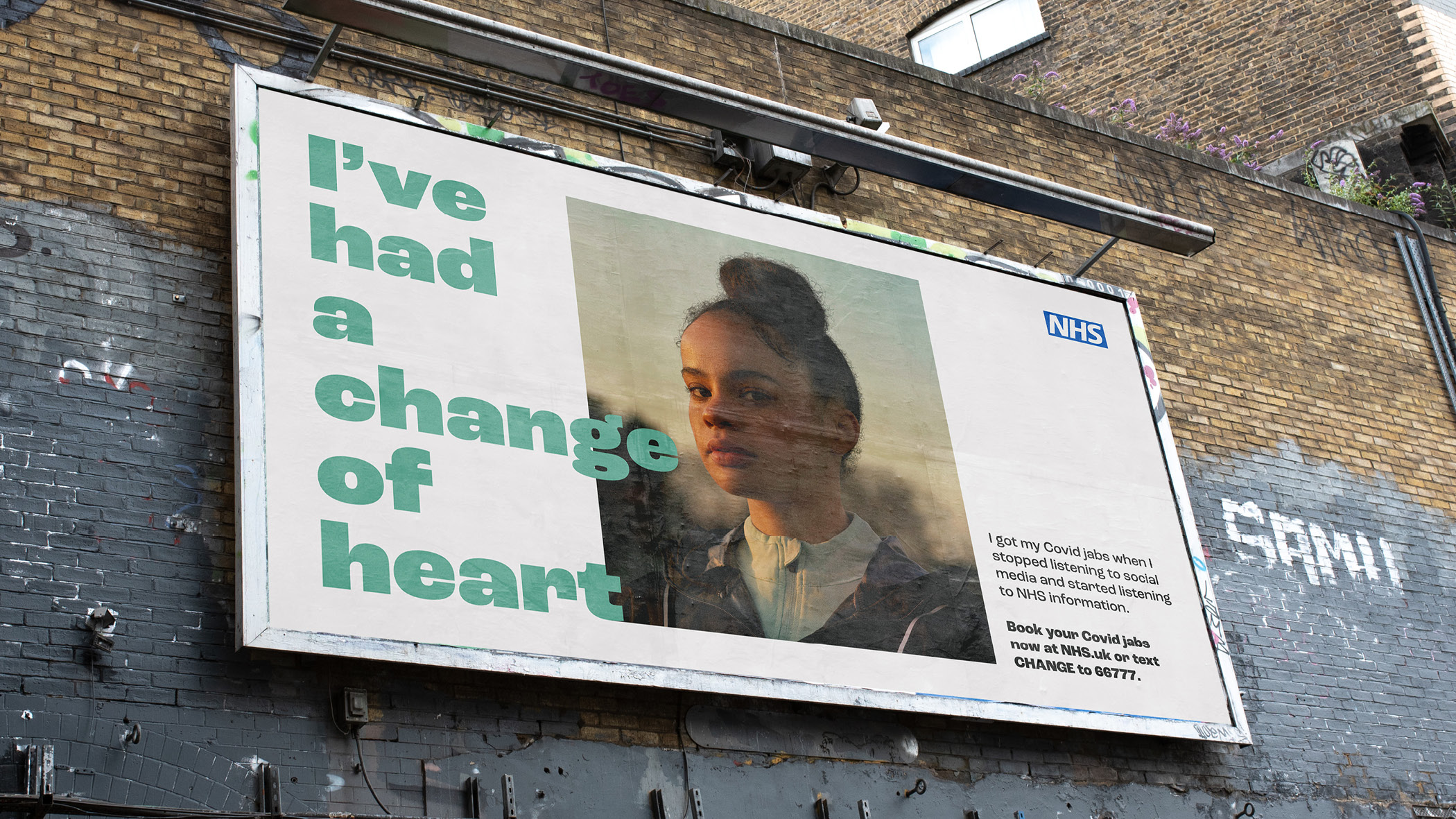
RESULTS
The campaign was highly effective in reaching our audience, with 65% recalling at least one element.
Our representative survey of the region found that 84% of the audience took at least one of our desired actions. The most common action was to visit the NHS website (37%). Encouragingly, 24% stated that they had a vaccination after seeing the campaign, and 11% stated that they had ‘changed their mind about wanting a Covid vaccination’.
The NHS data compares pre and post campaign vaccinations. All over the country, the number of vaccinations among under 30s was declining. But in our campaign area and period, the decline was much less severe. Nationally the number of vaccinations dropped by an average of 43%, but in our region it declined at a much lower rate of 30%.
The fact that the region outperformed the national average on first dose (by 9%), second dose (by 10%) and third dose (by 21%) showed that the campaign worked as inspiration to take the first step, as well as acting as a nudge to get fully vaccinated.
The campaign exceeded our target, helped to buck the North East’s national vaccination trend, was clear and compelling, and changed people’s minds. The campaign’s success has been recognised nationally, so far winning 9 awards across marketing, PR and at the NHS Communicate Awards. It’s a campaign that we’re extremely proud of.